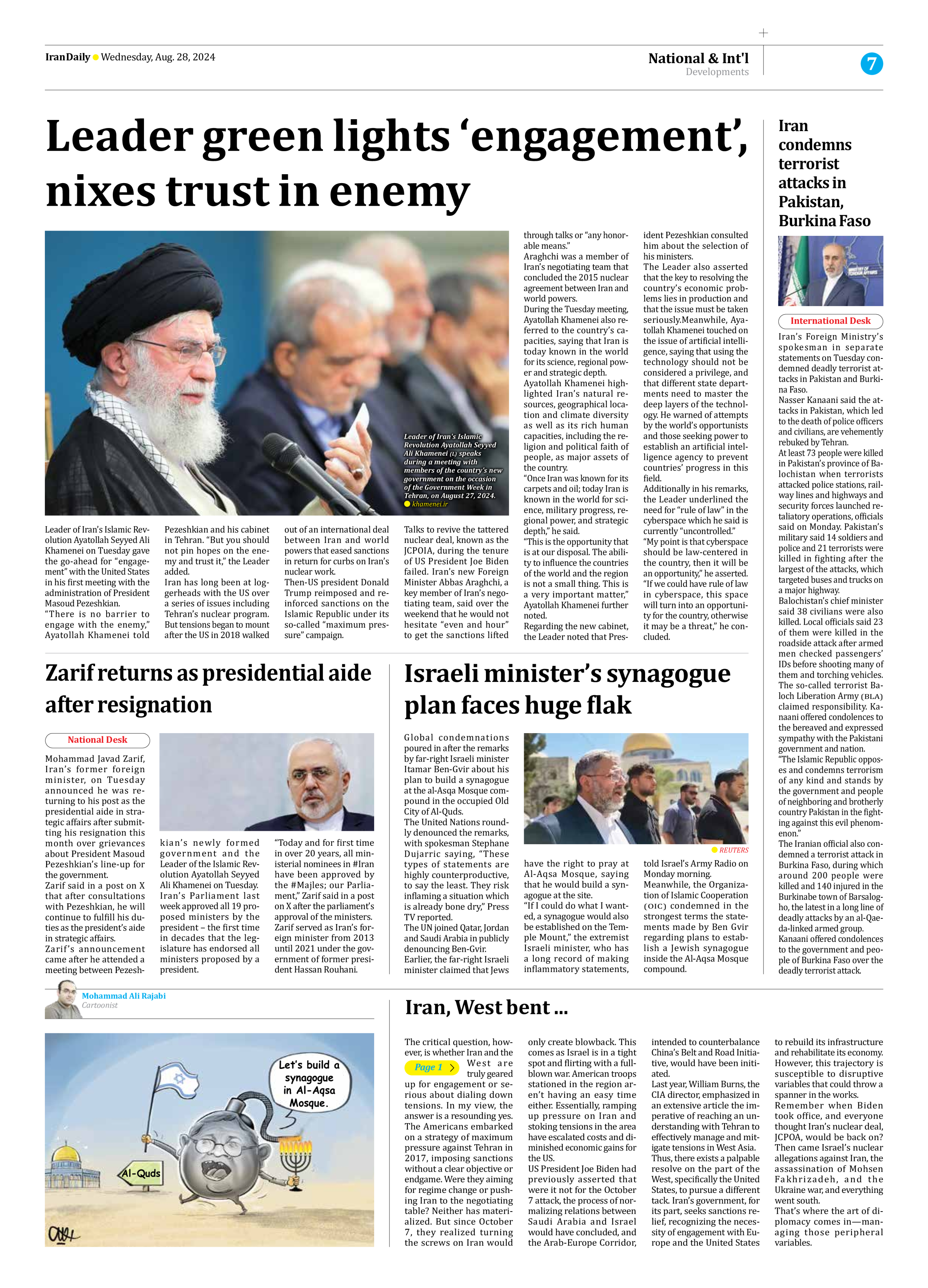
Copy in clipboard...
Leader green lights ‘engagement’, nixes trust in enemy
“There is no barrier to engage with the enemy,” Ayatollah Khamenei told Pezeshkian and his cabinet in Tehran. “But you should not pin hopes on the enemy and trust it,” the Leader added.
Iran has long been at loggerheads with the US over a series of issues including Tehran’s nuclear program. But tensions began to mount after the US in 2018 walked out of an international deal between Iran and world powers that eased sanctions in return for curbs on Iran’s nuclear work.
Then-US president Donald Trump reimposed and reinforced sanctions on the Islamic Republic under its so-called “maximum pressure” campaign.
Talks to revive the tattered nuclear deal, known as the JCPOIA, during the tenure of US President Joe Biden failed. Iran’s new Foreign Minister Abbas Araghchi, a key member of Iran’s negotiating team, said over the weekend that he would not hesitate “even and hour” to get the sanctions lifted through talks or “any honorable means.”
Araghchi was a member of Iran’s negotiating team that concluded the 2015 nuclear agreement between Iran and world powers.
During the Tuesday meeting, Ayatollah Khamenei also referred to the country’s capacities, saying that Iran is today known in the world for its science, regional power and strategic depth.
Ayatollah Khamenei highlighted Iran’s natural resources, geographical location and climate diversity as well as its rich human capacities, including the religion and political faith of people, as major assets of the country.
“Once Iran was known for its carpets and oil; today Iran is known in the world for science, military progress, regional power, and strategic depth,” he said.
“This is the opportunity that is at our disposal. The ability to influence the countries of the world and the region is not a small thing. This is a very important matter,” Ayatollah Khamenei further noted.
Regarding the new cabinet, the Leader noted that President Pezeshkian consulted him about the selection of his ministers.
The Leader also asserted that the key to resolving the country’s economic problems lies in production and that the issue must be taken seriously.Meanwhile, Ayatollah Khamenei touched on the issue of artificial intelligence, saying that using the technology should not be considered a privilege, and that different state departments need to master the deep layers of the technology. He warned of attempts by the world’s opportunists and those seeking power to establish an artificial intelligence agency to prevent countries’ progress in this field.
Additionally in his remarks, the Leader underlined the need for “rule of law” in the cyberspace which he said is currently “uncontrolled.”
“My point is that cyberspace should be law-centered in the country, then it will be an opportunity,” he asserted.
“If we could have rule of law in cyberspace, this space will turn into an opportunity for the country, otherwise it may be a threat,” he concluded.







